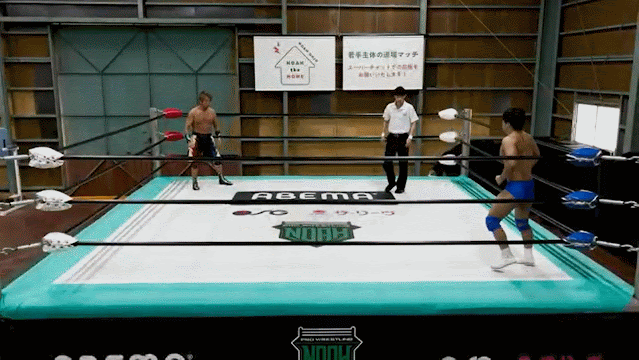Sem (named after Noah's eldest son) was founded in 2006 by Mitsuharu Misawa (ironically the biblical Sem was said to have died at the age of 600 years), was a smaller satellite promotion of Noah that showcased the trainee\rookies in Noah's dojo. Naomichi Marufuji and KENTA worked as the head trainers and they, along with other Noah wrestlers (and those of outside promotions) would make appearances at the shows.
Misawa created Sem after seeing the wXw Academy when he was in Germany, and he would often sit and watch from the balcony. Being only what amounted to a televised house show, there were no separate SEM titles, and neither where any Noah championships ever defended at the events (although Noah champions did make appearances from time to time).
The shows were smaller and more intimate and were held at Differ Ariake, Tokyo, where Noah had their offices and dojo at the time. Rather than aiming to sell out the arena, (which they knew they couldn't do for this), Noah aimed to sell only one hundred seats which were placed closer to the ring that you would have in a normal Noah show. The colors of SEM where also changed to purple, and it functioned as an entity in its own right with different logo, music and format from Noah.
Due to money issues and Noah entering in their dark years, Sem was disbanded in 2015.
NOAH the HOME
During the coronavirus pandemic, Noah hit upon the old formula of holding shows geared around their younger roster without any storylines or titles being defended, and in this manner the dojo shows were born again. First broadcast on YouTube in June 2021 from the Noah dojo in Saitama (Noah having moved out of Differ Ariake about five years ago or so), they gradually took on a formula of special guests (usually either their trainers or veterans), with Junta Miyawaki and Yasutaka Yano presenting special shows to announce the next series. Fans were also encouraged to donate money which would go towards maintaining the dojo, and as an extra incentive for both wrestler and viewer, this money would buy a member of the roster a gift should they be nominated as MVP.
The shows moved from YouTube to WrestleUniverse in October 2021.










